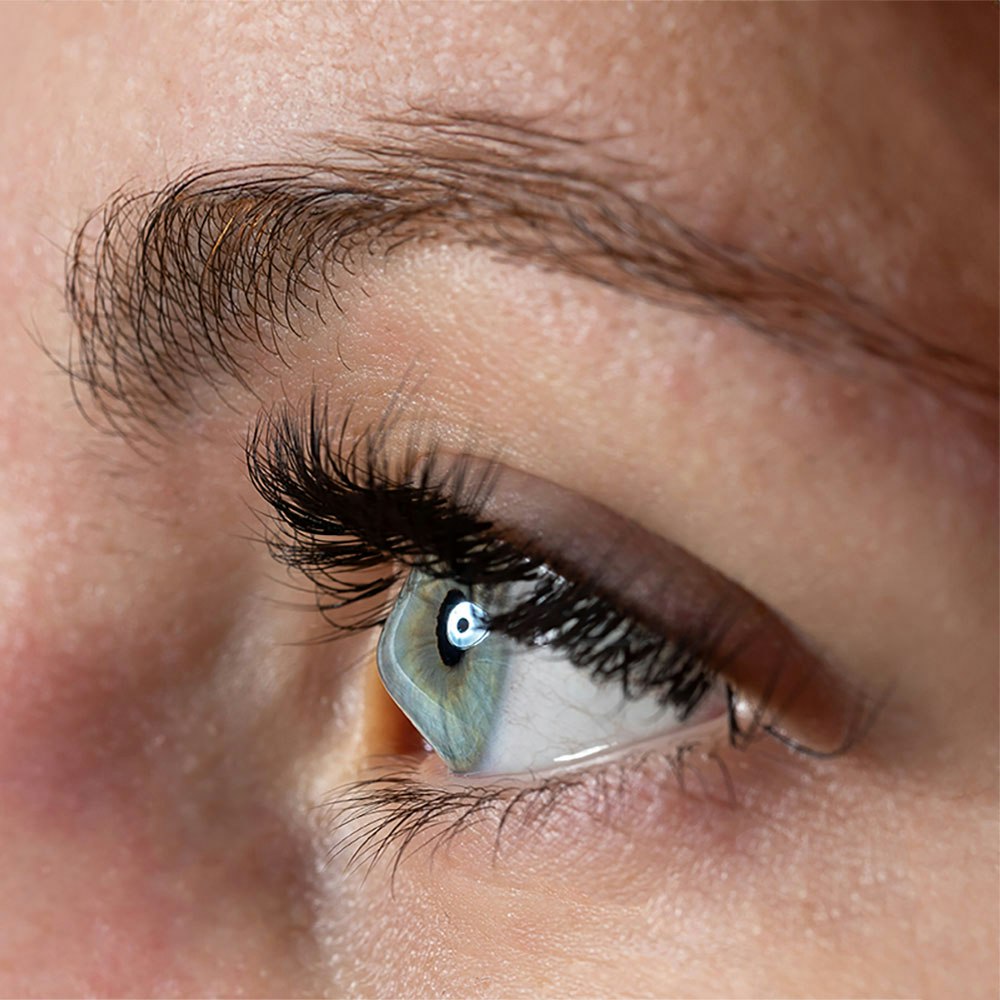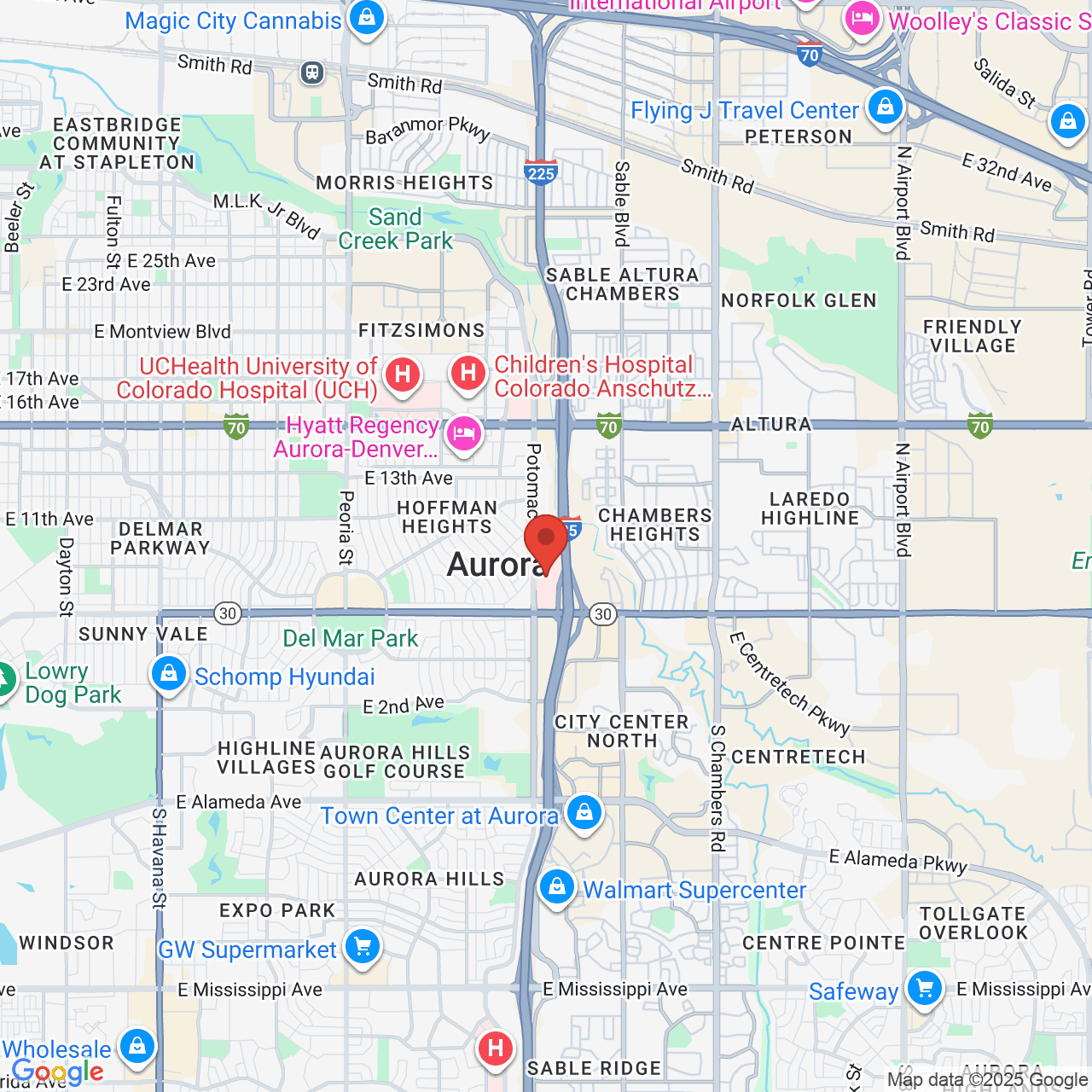Keratoconus
Does your cornea seem to protrude?
You may have keratoconus, a corneal condition that can lead to vision impairment.
At Burcham Eye Care Center, our team helps Aurora, CO, patients find treatment for this condition to preserve their sight.

What Is Keratoconus?
Keratoconus manifests when the outer, dome-like layer of the eye (the cornea) undergoes thinning, causing a subtle protrusion. While a normal cornea maintains a rounded shape, a cornea impacted by keratoconus adopts a cone-like shape.
Typically, signs of the condition manifest in the late teenage years, presenting as blurred vision and heightened sensitivity to light. Mild to moderate cases can be addressed using noninvasive measures like corrective lenses and corneal crosslinking. However, advanced cases may require surgical solutions.


How Does Keratoconus Affect Vision?
Irregular Astigmatism
Not all people who have astigmatism have keratoconus, but all people with keratoconus have an irregular astigmatism. As the cornea begins to thin and protrude, the distorted corneal tissue results in astigmatism. This refractive error can create an asymmetric blur in the vision.
Nearsightedness
As the bulge of the cornea increases, the proper focusing of light on the retina diminishes, causing a distortion in long-distance vision. Close-range objects may remain clear with keratoconus, but objects at a distance can appear blurry. This visual condition is called myopia and can be treated with glasses or contact lenses.
Symptoms of Keratoconus
Keratoconus symptoms typically start to manifest in late adolescence to early adulthood. The progression of symptoms can look different for everyone. Typically symptoms progressively worsen over the course of many years, but in some patients they can progress more quickly. If you start to notice any of the following symptoms, it's important to report them to your eye doctor to establish the necessary treatment plan to preserve your vision. Typical symptoms may include:
- Light Sensitivity
- Frequent Changes in Vision
- Blurred Vision
- Distorted Vision
- Sudden Worsening of Vision
- Poor Night Vision
- Clouded Vision
- Dry Eye
Contact Our Colorado Office if You're Experiencing Symptoms
As soon as you start to notice symptoms of keratoconus and changes in your vision, it's a good idea to visit Burcham Eyecare Center for a vision exam. Using advanced technology, our Colorado team can figure out the cause of your symptoms and find a solution to slow the progression of diminishing or changing vision.
The sooner you confront the symptoms of keratoconus, the quicker our team can find a solution. Take the first step to protect your eye health by visiting our team of eye doctors at our Aurora, CO, eye care clinic for a comprehensive evaluation. To schedule an appointment, send us a message or call:
(303) 340-4600

"I had a 5 star experience" Raving Reviews From Aurora Patients
I am very pleased with Dr Burcham and the staff. They are very thorough considerate and professional.
View On GoogleI had a 5 star experience because the assistant, Brandon, was wonderful! He was thorough, super nice, and made me feel heard and comfortable throughout the testing.
View On GoogleTake a Deeper Look At Corneal Treatment Options
Our Aurora team can help find a solution to slow the progression of vision changes.
Less Invasive Treatment Is Often Enough to Preserve Your Vision
Only 15–20% of patients suffering from keratoconus will eventually require a corneal transplant. National Keratoconus Foundation
Frequently Asked Questions About Keratoconus and Treatment
What's the cause of keratoconus?
The cause of keratoconus isn't clear. It's believed that the condition may be predisposed at birth and that a lack of collagen in the cornea is often found with keratoconus patients. The cornea is made up of a meshwork of collagen fibers, so when these fibers weaken, the bulging appearance associated with keratoconus can occur. This is why procedures like collagen cross-linking can be an effective solution for many keratoconus patients.
What are the risk factors for developing keratoconus?
Since the cause of keratoconus is unknown, it can be difficult to identify the risk factors associated with the condition. However, having a family history of keratoconus, vigorously rubbing your eyes, and having certain conditions, such as retinitis pigmentosa, Down syndrome, Ehlers-Danlos syndrome, Marfan syndrome, hay fever, or asthma may be contributing risk factors.
Am I a candidate for a corneal transplant?
Our ophthalmologists will always aim to manage your keratoconus symptoms in the least invasive manner. Corneal transplants may be the best solution if your cornea is exceptionally thin, other keratoconus treatments like special corrective lenses have failed, or the condition has progressed to advanced stages.


